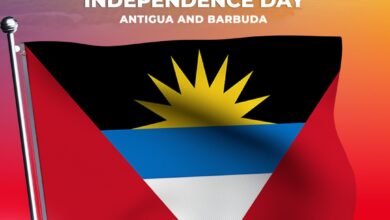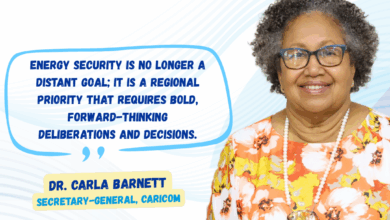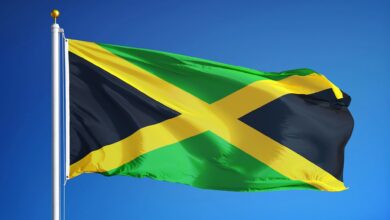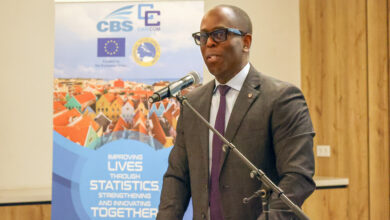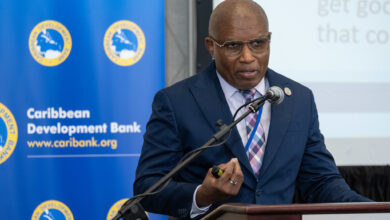(CARICOM Secretariat, Turkeyen, Greater Georgetown, Guyana) The CARICOM Single Market is working but varying levels of commitment and emphasis on specific initiatives “bedevil implementation in a consistent and timely manner,” the Hon David Thompson, Prime Minister of Barbados said Friday.
Delivering the feature address at the opening of the two-day Convocation on the CARICOM Single Market and Economy (CSME) at the Lloyd Erskine Sandiford Conference Centre, Bridgetown, Barbados, Prime Minster Thompson told stakeholders that capacity constraint and not disinterest was responsible for the examples of irregular application of provisions of the Community’s flagship programme.
Heads of Government at the Convocation include the Hon Baldwin Spencer, Prime Minister of Antigua and Barbuda, Dr. the Hon. Ralph Gonsalves, Prime Minister of St. Vincent and the Grenadines and the Hon Patrick Manning, Prime Minister of Trinidad and Tobago. Ministers from across the Community, Opposition leaders, members of the private sector and civil society, representatives of the Diplomatic Corps and the media are also at the forum.
Mr. Thompson acknowledged that the integration of the twelve Member States involved in the CSME presented tensions that must not be ignored.
He referred to the “vigorous responses” Region-wide to the question of the free movement of persons, but warned that the Community had to be careful not to allow the excitement associated with a declaration of free movement of people to eclipse the matter of balanced regional development.
Integrating a number of countries that are of different levels of development, and legislative systems, with varying cultures and languages and which are separated by water was a conceptual and practical challenge, but not “one beyond our reach or means”, he said.
Acknowledging that the Region must adopt new and more meaningful consultative systems on the CSME so that there is the widest possible involvement, Prime Minister Thompson said that the private sector, labour, the wider civil society, members of the opposition and others should be “provided with a real avenue to contribute to the development of the CSME.
“And this convocation seeks to attain that goal by opening the discussion and reporting on progress so far,” he said.
His remarks followed those of Ms. Jacqueline Jack, President of the Caribbean Congress of Labour (CCL) who expressed dissatisfaction that though it constituted a significant partner, labour was being “sidelined”.
“The accommodation of the interests of all the citizens of the Community as far as is practicable is critical,” Prime Minister Thompson said.
Prime Minister Thompson also expressed appreciation to the international development partners for their contributions to the creation of a new Caribbean.
“Their interest is recognized and is reciprocated by the fact that our work to date is moving us toward a new era within CARICOM,” he said.
The Prime Minister said he wanted the Convocation to stimulate a region-wide engagement on the CSME with all CARICOM citizens familiarizing themselves with the provisions of the Revised Treaty of Chaguaramas and indicating what they wished for it to accomplish for them personally and collectively.
“As Lead Head of Government with responsibility for the CSME, I call on us all to be practical, forthright and balanced on these issues. While we have our personal and national interests, this Convocation will only make sense if we see ourselves as Caribbean people struggling together to improve our lives,” PM Thompson told the Convocation.
His Excellency Edwin Carrington Secretary-General of CARICOM also called for free and frank discussions at the Convocation. The interaction of stakeholders at the forum held promise for providing elucidation, guidance and recommendations to further the course “that we should collectively chart going forward.”
The Secretary General pointed out that the Community had “gone too far to turn back now”, and challenged stakeholders to ascertain what would be the cost of non-CARICOM or non-CSME, and whether Member States were willing, individually, to face the developed countries as trading partners.
“The reality is that an efficient Single Market and Economy is this Community’s best hope in relating to the international community and for its own growth and prosperity and for an improvement in the standard of living for its people.
“Let us stop equivocating and get on with the building of a Community from which our children and their children will benefit and be proud,” he said.

